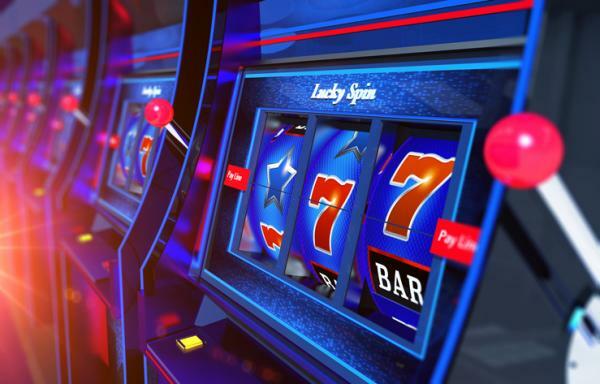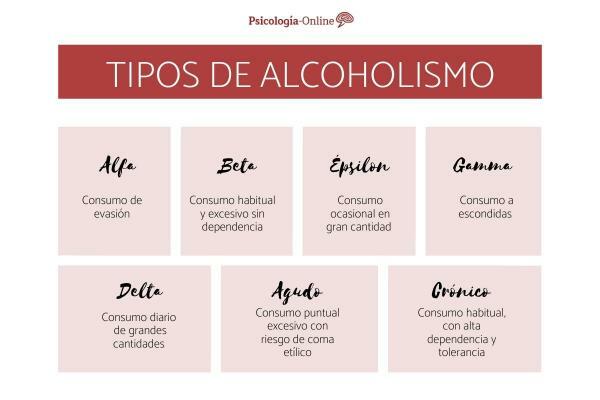
There are a variety of activities that we enjoy doing, some more than others. We prioritize some activities over others due to the enjoyment or pleasure they produce; we can indulge ourselves by watching our favorite television show, hanging out with friends one evening, reading a book, creating investigations and experiments, taking pictures, and some playing games. In this Psychology-Online article we will explain what is compulsive gambling: symptoms, causes, consequences and treatment.
Index
- Gambling: what is it
- Pathological gambling: symptoms
- Pathological gambling: causes
- Pathological gambling: consequences
- Gambling: Internet games
- Pathological gambling: treatment
Gambling: what is it.
All addictions they keep certain common characteristics that makes them accessible to recognize among all other pathologies. We define then that problem gambling such as gambling addiction, which is considered a disease since it has characteristics in common with the rest of the addictions.
According to the Diagnostic and Statistical Manual of Mental Disorders DSM 5 (2013), the characteristics of an addiction are as follows:
- The behaviors of the gambling addiction, gambling or pathological gambling activate the reward systems similar to drugs of abuse.
- Gambling addiction produces behavioral symptoms similar to those of substance use disorders.
Pathological gambling: symptoms.
The following are the symptoms that characterize gambling, pathological gambling or gambling addiction according to DSM 5 (2013):
- The behavior of a gambler is characterized by persistent and recurrent problem gambling.
- Causes a clinically significant impairment or discomfort.
- Needs of bet amounts of money in increasing numbers with the aim of obtaining the desired excitement or pleasure.
- The person suffering from gambling addiction is nervous or irritated when you try to reduce or quit the game.
- Is often kept busy thinking about the bets (for example, continually reliving past gambling experiences with imagination, planning your next bet, and thinking of ways to get money for gambling).
- Often gambles when feeling restless (eg, anxiety, fear, sadness, guilt).
- After to lose money in betting, he usually returns the next day or days later to recover what he lost.
- You endanger or have lost an important relationship, a job, or an academic career because of your gambling addiction. Gambling addiction has significant psychosocial consequences.
- You often count on other people to give you money to ease your financial situation.
Pathological gambling: causes.
Addictions have a multifactorial origin, as recognized by DSM 5 (2013): temperamental, genetic and physiological. You will find information about the causes and the process of addiction in the following article: What is an addiction: definition and why it happens.
One of the most common causes of gambling addiction is blow tolerance for frustration by constant or no exposure to pleasure. This low tolerance for frustration can be formed to a greater degree in any genetically predisposed person (for example, a father who has had a substance addiction, a mother diagnosed with pathological gambling or pathologies can also be alluded to in parents with an established diagnosis of depression, anxiety, neuroticism or narcissistic personality).
Gambling gives us pleasure and therefore it will be one of the activities that we prefer to do over the others. Based on the physiological principle of addictions, the reward circuit is formed and over-activated, exacerbating the synthesis of the neurotransmitter involved in pleasure, the dopamine. This is one of the causes that produce and maintain gambling or gambling addiction; It is difficult for us to give up something that allows us to skip the unpleasant moments of life (for example sadness and frustrations).
Pathological gambling: consequences.
As mentioned above in the symptoms of gambling addiction, one of the characteristics of gambling is the clinical deterioration that exists. Below are some of the most common consequences of gambling addiction:
- Impaired psychosocial functioning. Specifically, they can put at risk or lose very important relationships with friends or family due to his involvement in the game by repeatedly lying to others to hide the magnitude of his disease.
- Deterioration of physical and mental health. Starvation from spending time and money on gambling. A anxiety disorder, depressive disorder, sleep problems or Eating Disorder secondary or comorbid as a consequence of addiction.
- Work or academic impairment. Work, professional or academic activities are affected or impaired. For example, poor performance in college or work, as they may dedicate time from work or study to play or because of their concern about gambling.
- General health quite deteriorated so they usually make constant use of medical services.

Gambling: Internet games.
As mentioned at the beginning, addictive gambling behavior shares characteristics with those recognized by DSM 5 (2013) as substance use disorders; the conduct of video game addiction cover the same presentation (spending more time than planned in the activity, abandoning or neglecting responsibilities, social, family, work, professional or academic deterioration, general health deterioration and repeated failed attempts by abandon addictive behavior) but it is still in the process of being studied for its official integration into some category of disorders mental.
This addiction should not be confused with the diagnosis of pathological gambling / gambling or gambling addiction since it is characterized by persistent use and recurring use of the Internet to participate in games, which are often with other online players and which cause impairment or clinical discomfort significant.
Internet games are also generally used to evade or alleviate negative affect (eg feelings of guilt, anxiety, sadness, helplessness). In the following article you will find more information about Internet Addiction.
Pathological gambling: treatment.
The treatment of pathological gambling or gambling can be the same as that used in substance addictions; the first step is the problem recognition (point that is difficult but essential), being aware that addictive behavior requires professional intervention you begin to take responsibility for the symptoms and their consequences.
Psychoanalysis proposes exploring the conflict and internal difficulties that symbolize gambling addiction behavior.
In cognitive behavioral therapy, the causes, precipitators and maintainers of addiction are analyzed and those that can be modified are discussed. By means of the psychoeducation and learning of emotional management techniques it is intended to empower the person to cope with addiction. It is also important to have the support of close people so they must be informed and work as a team with the professionals and the patient.
If you wonder how to stop gambling, from Psychology-Online we recommend you go to a medical center as soon as possible. Professionals will be able to advise you on the best treatment for your case.
This article is merely informative, in Psychology-Online we do not have the power to make a diagnosis or recommend a treatment. We invite you to go to a psychologist to treat your particular case.
If you want to read more articles similar to Pathological gambling: symptoms, causes, consequences and treatment, we recommend that you enter our category of Addictions.
Bibliography
- American Psychiatric Association. (2013). Diagnostic and Statistical Manual of Mental Disorders (DSM 5). Editorial Panamericana.
Pathological gambling: symptoms, causes, consequences and treatment


